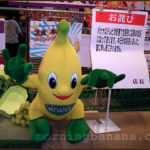
The Morning Banana Diet Review
Article below written by Lisa Schweitzer.
The Promise
Get ready to go bananas! But that’s not all you’ll eat on this plan.
The Morning Banana Diet, also known as Asa-Banana Diet, comes from a husband and wife in Japan: Sumiko Watanabe is a pharmacist and preventive medicine expert. Her husband, Hamachi, has studied traditional Chinese medicine and counseling at the Japan Body Care Academy.
The diet encourages you to eat fruit, become aware of your hungerand fullness levels, and eat dinner by 8 p.m. There aren’t strict meal plans or calorie counts. For lunch and dinner, you’ll eat what you always have, but stop when you’re 80% full, and you’ll skip dessert after dinner.
The plan also recommends you go to bed by midnight and stresses the importance of a good night’s sleep, as well as keeping a diet journal.
You could lose weight simply because you’re eating fewer calories. Besides testimonials, there is no proof that this diet works.
What You Can Eat and What You Can’t
There are different versions of the diet, but the overall themes are similar.
For breakfast, you will eat bananas and drink room-temperature water. The bananas must be raw, never cooked or frozen. You may substitute other fruit, but only one type per meal. If you are still hungry, wait 15 to 30 minutes and you can eat something else.
You will eat normally for lunch and dinner. The diet says you can eat whatever you want, but it recommends Japanese food, especially rice for lunch.
You are allowed only one snack each day in the afternoon, which is also the only time sweets are allowed.
The diet also recommends avoiding dairy and ice cream most of the time.
Level of Effort: Low
You won’t have to overhaul what you eat, or cut way back on portions. You will need to cut out dairy and work on tuning in to when you’re starting to get full.
Limitations: This plan is very flexible but does restrict what you eat at breakfast to bananas or another type of fruit.
Cooking and shopping: You can cook or eat out as you usually do.
Packaged foods or meals: No.
In-person meetings required: No.
Exercise: The plan encourages you do some walking each day, but “not if it stresses you out.”
Does It Allow for Dietary Restrictions or Preferences?
The plan is flexible enough for vegetarians and people with any dietary restrictions.
What Else You Should Know
Cost: No special foods are required. You may even save money, since bananas are inexpensive.
Support: You can sign up for the Morning Banana Diet Journal, but for the most part, you will do this diet on your own.
What Dr. Michael Smith Says:
Does It Work?
The Morning Banana Diet will probably work simply because you’ll eat less. There is nothing, though, about a morning banana that specifically promotes weight loss.
There’s nothing magical about not eating anything after 8 p.m., however. But if you eat late now, this tip will likely cut out some calories. Stopping eating when you’re 80% full will help, as well.
Few other diet programs focus on sleep, like this one does, but multiple studies show that people who get 7 to 9 hours a night tend to weigh less. When you’re tired, you’re more likely to overeat and eat unhealthy foods.
Despite the diet’s concern that exercise might stress you out, working out can help with stress and sleep in addition to burning calories.
If you’re not up for huge changes, this diet should appeal to you, as it’s more of a gradual transition into healthy eating and weight loss. If you build these skills into your routine, you’ll see the weight drop off and stay off.
Is It Good for Certain Conditions?
Any healthy diet that leads to weight loss is good for diabetes, high cholesterol, high blood pressure, and heart disease. If you follow the concepts in the diet and cut back on how much unhealthy food you eat, you should be able to better manage your conditions.
The Final Word
The Morning Banana Diet will teach you good techniques that you can incorporate into any lifestyle. If you’re able to make the diet’s strategies stick, you’ll have a better chance at long-term weight loss and improved health.